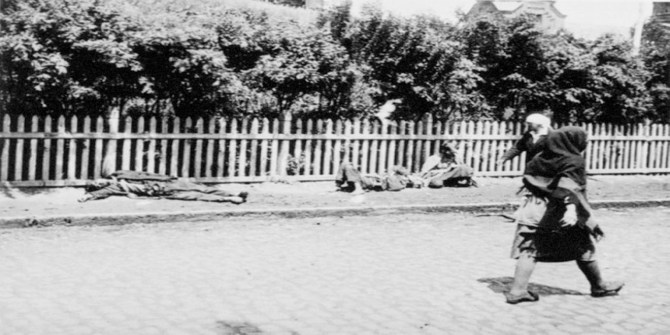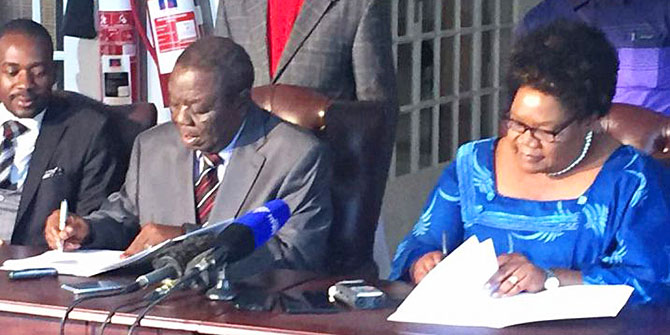Here at the Africa at LSE blog, we love bringing to the attention of the public books about Africa. As the year draws to an end, here are our most popular book reviews of 2017. Some great reviews and books haven’t made this list, do visit the book reviews section of our blog to discover more.

Photo credit: Mike via Flickr (http://bit.ly/2izJS7o) CC BY 2.0
- The Root Causes of Sudan’s civil wars by Douglas H. Johnson – For readers interested in really engaging with the historical depth of the conflicts in Sudan and South Sudan, The Root Causes of Sudan’s Civil Wars by Douglas H Johnson should be required reading, says Richard Stupart (@wheretheroad).
- Book Review: South Sudan: A new History for a new nation by Douglas H Johnson – LSE’s Richard Stupart (@wheretheroad) recommends South Sudan: a new history for a new nation to those wanting to gain a general understanding of the history of South Sudan, as well as seeking an introduction to it.
- Understanding Zimbabwe by Sara Rich Dorman (@afr_pol) – Sara Rich Dorman has produced a remarkably original, expansive and analytical text. Understanding Zimbabwe: From Liberation to Authoritarianism is also an extremely timely contribution given the recent resurgence of civic activism in the country. In highlighting contestation between society and the state, this book will surely launch new debates both in Zimbabwe and among its scholars, says Nick Branson (@NHBranson).
- The Horn of Africa: State formation and decay by Christopher Clapham – Christopher Clapham should be commended for synthesising a career of scholarship on the Horn of Africa into a short volume written in fluid and engaging prose. Those seeking an introduction to a region which defies easy explanation would struggle to find a better foundational text in paperback, says Nick Branson (@NHBranson).
- Controlling Consent: Uganda’s 2016 elections Edited by J Oloka-Onyango and Josephine Akhire – In light of recent debates about the need to decolonise education across Africa, Controlling Consent: Uganda’s 2016 election provides well-researched, broadly insightful articles predominantly authored by lecturers and affiliates of one of Uganda’s foremost academic institutions. It is an important, comprehensive and timely collation of material on the increasingly authoritarian character of the state in Uganda, says Jamie Hitchen (@jchitchen).
- The Rise of Africa’s Middle Class: Myths, Realities, and Critical Engagements by Henning Melber (ed.) – This book seeks to wrestle back the African middle class debate from the Afro-optimists with mixed success, according to LSE’s Rebecca Simson.
- The Divide: A Brief Guide to Global Inequality by Jason Hickel (@jasonhickel) – Dagna Rams (@dagnna) argues that ‘The Divide’ by Jason Hickel offers a journey through fascinating arguments, facts, and figures, which exist in a schizophrenic state – on the one hand, some of them are still far from mainstream discussions about global development, especially in the West and, on the other hand, they are often invoked by the likes of Noam Chomsky or Naomi Klein.
- A Poisonous Thorn in Our Hearts: Sudan and South Sudan’s Bitter and Incomplete Divorce by James Copnall (@JamesCopnall) – Nicodemus Minde (@decolanga) recommends ‘A Poisonous Thorn in Our Hearts’ to students and practitioners of peace and conflict in Africa. According to him, the book offers an excellent socio-political and economic analysis of the two Sudans from the time of the divorce in 2011.
- Ivory: Power and Poaching in Africa by Keith Somerville – LSE’s Joanna Lewis describes this book as the best academic account to date of the history of the supply side of ivory trade.
-
The Despot’s Accomplice: How the West is Aiding and Abetting the Decline of Democracy by Brian Klaas (@brianklaas)– Jason Sumich describes The Despot’s Accomplice: How the West is Aiding and Abetting the Decline of Democracy by Brian Klaas as a well-written and engaging volume around the author’s vision of democracy although it would have benefitted from a serious engagement with differing opinions.
The views expressed in this post are those of the author and in no way reflect those of the Africa at LSE blog or the London School of Economics and Political Science.





